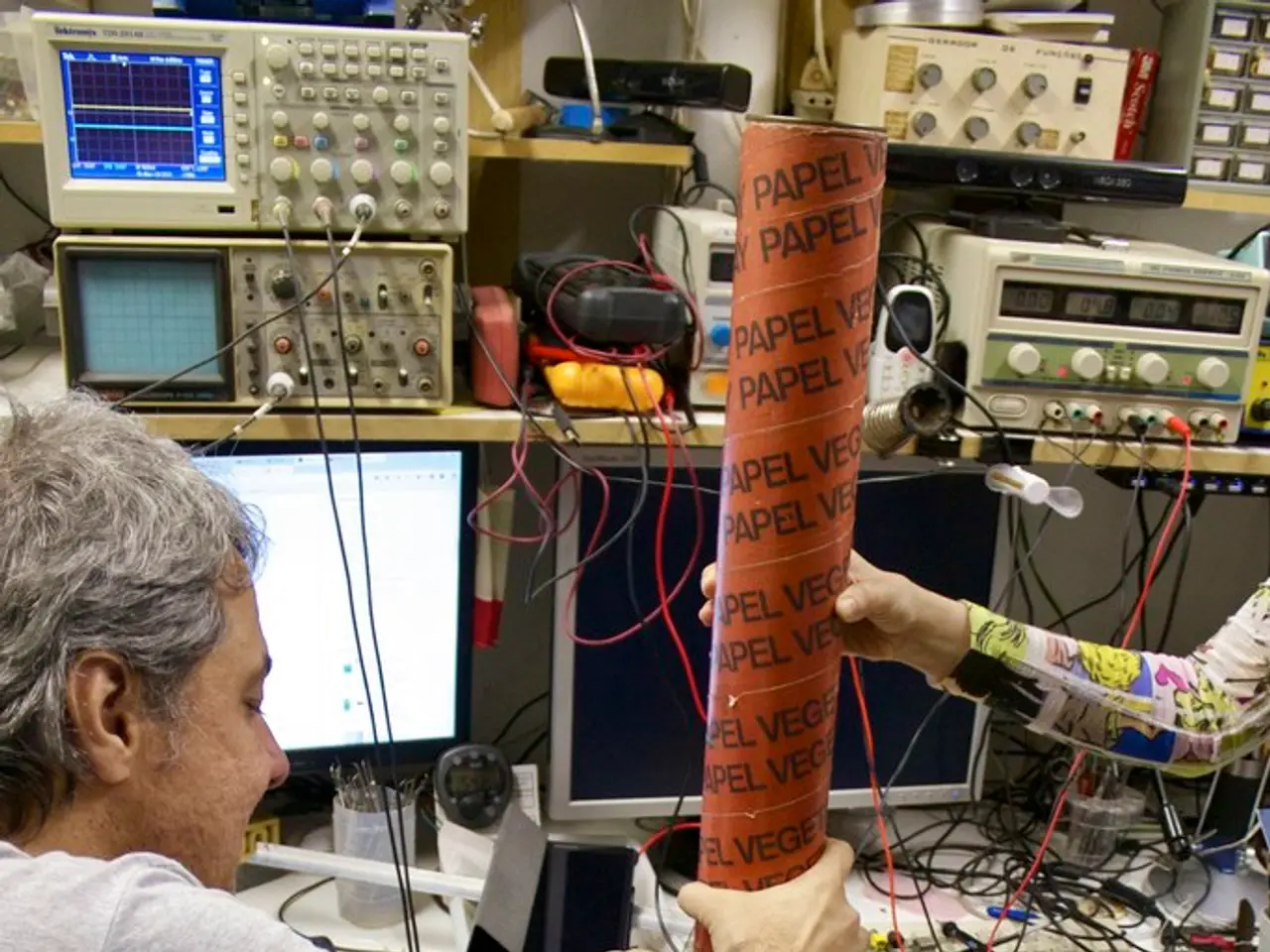Human trials for Neuralink's brain-implant technology, overseen by Elon Musk, are set to be initiated within the next half year.
In the realm of technological advancements, Elon Musk's Neuralink continues to make waves with its ambitious project to link the human brain with computers. Founded in 2016 by Musk, along with engineers and scientists, Neuralink aims to revolutionise the lives of people with disabilities and potentially unlock the door to "superhuman cognition."
Recently, Musk announced his intention to personally undergo a Neuralink brain chip implant, signalling the company's confidence in its technology. He also expressed expectations of beginning human clinical trials for the wireless device within the next six months, pending approval from the FDA.
Neuralink's primary focus is on developing applications to restore vision for the blind, full body functionality for individuals with severed spinal cords, and enabling paralyzed people to operate robotic limbs and smartphones using their minds. However, the project has not been without controversy.
Last year, Musk shared a video of a monkey with a brain chip implant playing "telepathic video games." The video, along with Neuralink's animal trials, has been met with allegations of animal maltreatment. The Physician's Committee for Responsible Medicine has called on Musk to share details of the monkey experiments.
Other companies, such as Synchron, are also venturing into the development of brain-computer interfaces for patients with paralysis. Synchron has successfully conducted studies and trials on four individuals in Australia using a brain-computer interface device, although the names of these individuals remain undisclosed. The company is waiting for the FDA's approval for human trials.
Anna Wexler, an assistant professor of Medical Ethics and Health Policy, has cautioned against encouraging people with disabilities to have high hopes for Neuralink's technology. She emphasises the importance of setting realistic expectations and ensuring thorough testing and safety measures before wide-scale implementation.
In addition to restoring movement and communication abilities for disabled patients, Neuralink's long-term goals include solving conditions like schizophrenia and autism. The company hopes that its products, once tested on humans and cleared by the FDA, will provide a new era of treatment and rehabilitation for millions worldwide.
As Neuralink moves closer to human trials, the world watches with a mix of excitement and apprehension. The potential benefits for those with disabilities are undeniable, but the ethical and safety concerns cannot be ignored. Only time will tell if Neuralink's ambitious project will deliver on its promises and usher in a new age of human-computer interaction.
Read also:
- Nightly sweat episodes linked to GERD: Crucial insights explained
- Antitussives: List of Examples, Functions, Adverse Reactions, and Additional Details
- Asthma Diagnosis: Exploring FeNO Tests and Related Treatments
- Unfortunate Financial Disarray for a Family from California After an Expensive Emergency Room Visit with Their Burned Infant








